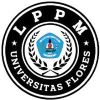Augmented Reality-Based Learning Media Training to Develop Elementary School Teachers' Creativity
DOI:
https://doi.org/10.37478/abdika.v4i4.5118Abstract
Learning using technology is currently the main thing because it has entered the Society 5.0 era. This community service activity aims to provide opportunities for elementary school teachers in Cirebon City to conduct training on the use of augmented reality-based teaching media to support the development of their creativity and role in the learning process in the classroom. This activity has a target, namely teachers who are members of the Teacher Working Group Forum (FKKG) who are members of the board of directors of a total of 40 teachers from representatives of their respective schools in Cirebon City. This activity aims to: (1) develop the role of teachers in the digital economy era to better master technology in the learning process; (2) providing opportunities for elementary school teachers in Cirebon City to develop creativity in making interesting teaching materials; (3) facilitating teachers in creating digital augmented reality-based teaching materials; (4) utilizing AR technology to present interactive teaching media; and (5) support Merdeka Belajar-Kampus Merdeka (MBKM) program. This service activity uses the Participatory Action Research (PAR) method which includes activities that will be carried out ranging from identifying problems (to know), understanding (to understand), acting (to act), making changes (to change). The stages in this activity include (a) socialization and FGD; (b) the training process in several meetings; (c) the application of technology; (d) assistance and evaluation; (e) program sustainability, which provides broad opportunities for teachers to implement AR technology in learning and share knowledge with peers. The results of the training activities had a good response from the participants, including being able to increase the creativity of teachers in compiling AR learning media. In addition, the results of the questionnaire response have a score of 4.45 in the "excellent" category.
Downloads
Keywords:
Augmented reality, Learning media, Teachers’ creativity, Elementary school studentReferences
Abidin, Y. (2023). Peran Guru dalam Membina Literasi Digital Peserta Didik pada Konsep Pembelajaran Abad 21. Jurnal Elementaria Edukasia, 6(2), 408–414.
Ananda, R., Nurjanah, S., Rahma, M., & Ernita, R. (2023). Analisis Kompetensi
Kepribadian Guru Sekolah Dasar. JIIP-Jurnal Ilmiah Ilmu Pendidikan, 6(12), 9657–9661.
Faizah, S. N., Khairiyah, U., Alawiyin, M., & Maulidiyah, Y. N. (2023). Pemberdayaan Guru SD melalui Participatory Action Research dalam Mengoptimalkan Kompetensi Penelitian. Amalee: Indonesian Journal of Community Research and Engagement, 4(1), 135–146.
Fauzia, W. (2023). Perkembangan kognitif anak usia dini. Feniks Muda Sejahtera.
Hendra, R., Fadriati, F., Supriadi, Y. N., Handriadi, H., & Suhendri, S. (2023). Education Decentralization Policy in Improving the Quality of Education. Edumaspul: Jurnal Pendidikan, 7(1), 187–194.
Herman, H., Zalukhu, A., Hulu, D. B. T., Zebua, N. S. A., Manik, E., & Situmorang, A. S. (2023). Augmented reality (AR) pada geogebra meningkatkan kemampuan spasial dan pemecahan masalah matematis pada materi dimensi tiga. Journal on Education, 5(3), 6032–6039.
Machali, I., Wibowo, A., Murfi, A., & Narmaditya, B. S. (2021). From teachers to students creativity? the mediating role of entrepreneurial education. Cogent Education, 8(1), 1943151.
Marchand, H. (2012). Contributions of Piagetian and post-Piagetian theories to education. Educational Research Review, 7(3), 165–176.
Mita, M. L., & Widjayatri, R. R. D. (2023). Peran Orang Tua terhadap Penggunaan Gadget pada Anak Usia Dini Generasi Alpha. Journal Ashil: Jurnal Pendidikan Anak Usia Dini, 3(1), 1–13.
Morales, M. P. E. (2016). Participatory action research (PAR) cum action research (AR) in teacher professional development: a literature review. International Journal of Research in Education and Science, 2(1), 156–165.
Prabowo, S., Andayani, A., & Hanafi, H. (2023). Literasi Digital dalam Pembelajaran: Perspektif Alumni PGSD. Jurnal Basicedu, 7(1), 99–105.
Rif’iyati, D., Haryanto, A. D., & Fajar, M. (2024). Pergeseran Makna Pendidikan Profesi Guru: Antara Idealisme dan Realitas. Penerbit NEM.
Rohani, R. (2020). Media pembelajaran.
Saman, A. M., & Hidayati, D. (2023). Pola Asuh Orang Tua Milenial dalam Mendidik Anak Generasi Alpha di Era Transformasi Digital. Jurnal Basicedu, 7(1), 984–992.
Simanjuntak, H., Bakti Tonni Endaryono, M. M., Sinaga, D., Siagian, B. A., Saragih, E. L. L., SS M, H. U. M., & Siagian, H. (2022). Mutu Pendidikan Untuk Jenjang Sekolah Dasar. Penerbit Qiara Media.
Sugiyono. (2013). Metodelogi Penelitian Kuantitatif, Kualitatif Dan R&D. ALFABETA.
Suprapto, W., Gustin, G., & Kariadi, D. (2023). Guru VS Media Sosial: Kontradiksi Peran Guru di Era Global. Sustainable Jurnal Kajian Mutu Pendidikan, 6(1), 148–158.
Tanjung, R., Hadiansah, D., Sauri, S., & Barlian, U. C. (2021). Inovasi Pembelajaran Daring Melalui Penggunaan Aplikasi Media Sosial (Social Networking):(Studi Kasus pada SMP Islam Terpadu Mentari Ilmu Karawang). Biormatika: Jurnal Ilmiah Fakultas Keguruan Dan Ilmu Pendidikan, 7(1), 92–99.
Wilkinson, C., & Wilkinson, S. (2024). Principles of participatory research. In Being Participatory: Researching with Children and Young People: Co-constructing Knowledge Using Creative, Digital and Innovative Techniques (pp. 15–37). Springer.
Yasin, R. (2023). Urgensi Kompetensi Guru dalam Mencetak Anak Didik yang Unggul dan Berkarakter. Tafhim Al-’Ilmi, 15(01), 127–141.
Downloads
Published
How to Cite
Issue
Section
License
Copyright (c) 2024 Siti Sahronih, Herisa Hardiyanti Sholeha, Mohamad Fahmi Reza, Jatu Wahyu Wicaksono, Intan Nurfadillah, Sofie Savitri

This work is licensed under a Creative Commons Attribution-ShareAlike 4.0 International License.









